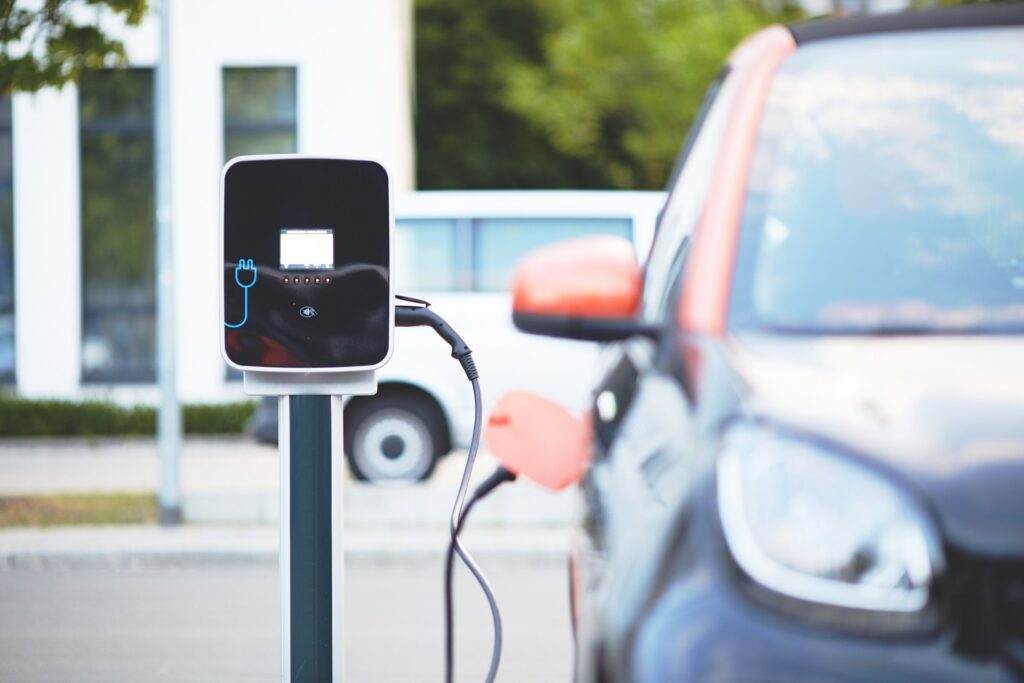Welcome to our latest blog post on the electric car revolution! In this article, we’ll explore the 5 latest innovations that are shaping the future of electric vehicles. From advancements in battery technology to cutting-edge charging infrastructure, the electric car industry Revolution: Latest Innovations, Trends, and News is paving the way for a more sustainable and efficient mode of transportation. Let’s delve into the exciting developments that are driving the electric car revolution forward.
Battery Technology
Solid-state batteries are a promising innovation for electric cars, offering higher energy density and improved safety compared to traditional lithium-ion batteries. This advancement could revolutionize the electric car industry by addressing key concerns about battery performance. Additionally, wireless charging technology is being developed to allow electric car owners to conveniently charge their vehicles without the need for plugging in, making the process seamless and effortless.
These innovations aim to enhance the overall user experience and convenience of electric car ownership. Furthermore, the advancements in battery technology aim to overcome the limitations of range anxiety, providing electric cars with longer driving ranges on a single charge, enhancing their practicality for everyday use, and making them a more viable option for consumers. Moreover, innovations in battery technology also focus on reducing charging times, aiming to make electric cars as convenient as refueling conventional vehicles at gas stations, thus further promoting their adoption and use in the market.

Affordable Electric Vehicle
The evolving battery technology is playing a pivotal role in making electric vehicles more accessible to a wider consumer base. Manufacturers are strategically prioritizing cost-effective production methods, resulting in more affordable options for potential buyers. Moreover, the decreased overall maintenance costs associated with electric vehicles are positioning them as a financially attractive choice for many consumers. As competition intensifies among electric vehicle manufacturers, prices are being driven down, further broadening the market’s accessibility to a diverse range of consumers.
Global Charging Network Growth
The global charging network for electric vehicles is rapidly expanding to meet the growing demand worldwide. With investments pouring into charging infrastructure, electric vehicle owners can enjoy increased convenience and confidence in their driving experience. Technological advancements in fast-charging systems are further improving the efficiency and effectiveness of the global charging network, ensuring that drivers can charge their vehicles quickly and easily.
Moreover, partnerships between automotive companies and energy providers are playing a pivotal role in accelerating the development of widespread charging infrastructure, making it easier for electric car owners to find charging stations wherever they go.
Job Creation
The electric car industry is not only revolutionizing transportation but also creating new opportunities for job creation. As the demand for electric vehicles (EVs) grows, so does the need for skilled workers in manufacturing, research and development, and infrastructure development. Manufacturing plants for EVs and their components are expanding, creating jobs in assembly, engineering, and quality control.
Additionally, the development of EV charging infrastructure requires electricians, construction workers, and technicians. Moreover, the shift towards electric vehicles is driving innovation in battery technology, leading to new job opportunities in battery manufacturing and research. Overall, the electric car industry is playing a significant role in job creation across various sectors, contributing to economic growth and sustainability.
Health Benefits
Electric cars offer significant health benefits by reducing air pollution and improving overall air quality. Traditional gas-powered vehicles emit harmful pollutants such as carbon monoxide, nitrogen oxides, and particulate matter, which can contribute to respiratory problems, cardiovascular diseases, and other health issues.
By switching to electric cars, which produce zero tailpipe emissions, we can significantly reduce these pollutants’ levels, leading to cleaner air and better health for everyone. This shift can especially benefit those living in urban areas, where air quality is often poorer due to high traffic density. As more people transition to electric cars, we can expect to see improvements in public health and a decrease in the prevalence of pollution-related illnesses.

Energy Independence
Energy independence can be achieved through the widespread adoption of electric cars. By transitioning from traditional gasoline vehicles to electric vehicles (EVs), countries can reduce their reliance on imported oil and fossil fuels. EVs can be powered by domestically produced electricity, including renewable sources such as solar, wind, and hydroelectric power.
This shift not only reduces greenhouse gas emissions but also enhances energy security by diversifying the energy mix and reducing dependence on volatile global oil markets. Additionally, the growth of electric vehicles can spur innovation and investment in domestic renewable energy infrastructure, creating jobs and boosting economic growth.
Conclusion
In conclusion, the car revolution is being propelled by a series of groundbreaking innovations that are reshaping the industry. From the advancements in battery technology, such as solid-state batteries and wireless charging, to the market expansion driven by affordable electric vehicles and the rapid growth of the global charging network, it’s evident that electric cars are becoming increasingly accessible and convenient for consumers.
As we witness the ongoing evolution of electric vehicles, it’s clear that the future of sustainable and environmentally conscious transportation is taking shape, promising a transformation in the way we move and travel. With these latest innovations, the electric car revolution is not just a trend, but a significant leap towards a more sustainable and efficient future.
FAQ
How do electric cars work?
Electric cars, or EVs, use electricity stored in batteries to power an electric motor, which drives the wheels. They do not rely on gasoline or diesel fuel like traditional vehicles but instead need to be charged regularly using a power source.
How far can electric cars travel on a single charge?
Electric cars, or EVs, use electricity stored in batteries to power an electric motor, which drives the wheels. They do not rely on gasoline or diesel fuel like traditional vehicles but instead need to be charged regularly using a power source.
How long does it take to charge an electric car?
Charging times vary based on the charger type and the car’s battery capacity. Using a standard home charger, it can take several hours to fully charge an electric car. However, fast chargers can significantly reduce charging times, with some models capable of charging to 80% in around 30 minutes.
Are electric cars more expensive to buy than traditional cars?
Initially, electric cars can be more expensive to purchase than traditional gasoline-powered cars. However, factors such as government incentives, lower fuel and maintenance costs, and improved resale value can offset the higher upfront cost over time.
Can electric cars be charged at home?
Yes, most cars come with a charging cable that can be plugged into a standard home electrical outlet. However, for faster charging speeds, homeowners can install a dedicated home charging station that is more efficient and convenient for daily charging needs.
Are electric cars environmentally friendly?
Electric cars produce zero tailpipe emissions, making them cleaner than traditional vehicles. However, the environmental impact depends on how the electricity used to charge them is generated. Charging with renewable energy sources such as solar or wind power further reduces their carbon footprint.

